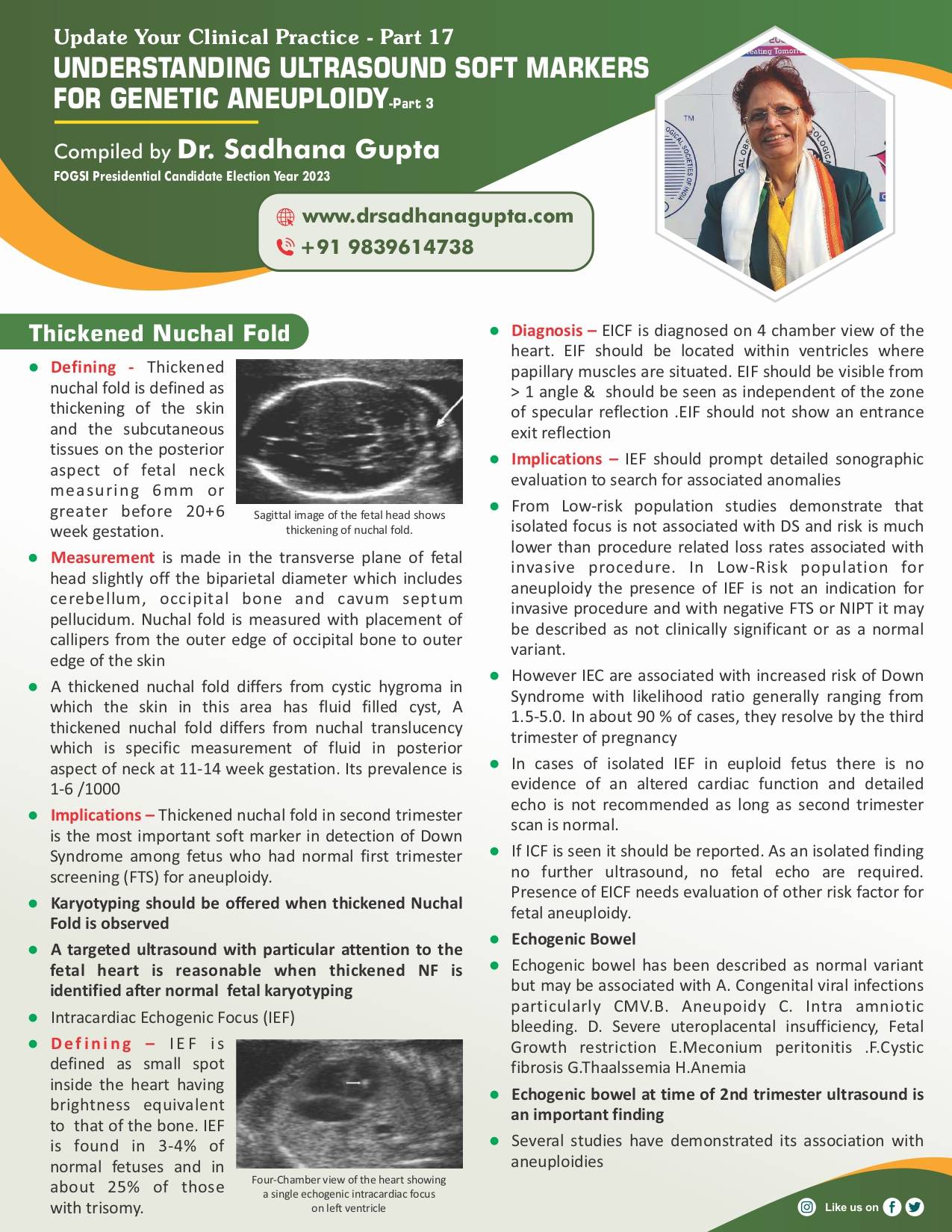Table of Contents
I. Introduction
Welcome to the third part of our series on understanding ultrasound soft markers for genetic aneuploidy. In the previous articles, we discussed the significance of ultrasound in prenatal screening, the concept of soft markers, and explored some common soft markers associated with genetic conditions. In this article, we will delve deeper into additional soft markers that can be detected through ultrasound, providing you with a comprehensive understanding of this important screening tool.
Section 1: Echogenic Bowel:
Echogenic bowel refers to a condition where the baby’s bowel appears brighter than usual on the ultrasound. While it can be a benign finding in some cases, it is considered a soft marker for genetic aneuploidy. Echogenic bowel may be associated with conditions such as Down syndrome, cystic fibrosis, or intrauterine infections. Additional tests and genetic counseling may be recommended if echogenic bowel is detected.
Section 2: Single Umbilical Artery:
The umbilical cord normally contains two arteries and one vein. However, in some cases, only one artery is present, which is known as a single umbilical artery (SUA). SUA is considered a soft marker for genetic aneuploidy and is associated with an increased risk of certain abnormalities, including heart defects, kidney problems, and chromosomal abnormalities. Further evaluation and additional testing may be suggested if SUA is detected during an ultrasound.
Section 3: Choroid Plexus Cysts:
Choroid plexus cysts are small fluid-filled spaces that can be detected in the brain during a prenatal ultrasound. While most choroid plexus cysts are harmless and resolve on their own, they can be considered soft markers for genetic aneuploidy. The presence of choroid plexus cysts may indicate an increased risk of conditions like trisomy 18 (Edwards syndrome). Further diagnostic testing and genetic counseling may be recommended to assess the risk accurately.
Section 4: Pyelectasis:
Pyelectasis refers to the dilation of the renal pelvis, the part of the kidney that collects urine before it flows into the bladder. Mild cases of pyelectasis are often benign and resolve on their own. However, moderate to severe pyelectasis can be a soft marker for genetic aneuploidy, such as Down syndrome. Additional testing, including genetic counseling and a fetal echocardiogram, may be suggested for further evaluation if pyelectasis is detected.
Section 5: Short Femur or Long Bones:
Measurement of the fetal femur, or thigh bone, is an essential part of the ultrasound examination. A significantly shorter or longer femur compared to the gestational age can be considered a soft marker for genetic aneuploidy. Abnormalities in bone length can be associated with conditions like Down syndrome, skeletal dysplasias, or other chromosomal abnormalities. Genetic counseling and further testing may be recommended if abnormal bone lengths are observed.
Conclusion
Ultrasound soft markers provide valuable information during prenatal screening for genetic aneuploidy. While the presence of these soft markers does not confirm the presence of a genetic condition, they can indicate an increased risk, prompting further evaluation and testing. It’s important to remember that soft markers should always be interpreted in conjunction with other screening tests and a thorough assessment by a healthcare professional. Genetic counseling plays a crucial role in providing guidance, support, and accurate risk assessment based on the findings. By understanding these soft markers and their significance, expectant parents can make informed decisions about their prenatal care and the potential need for further testing.

